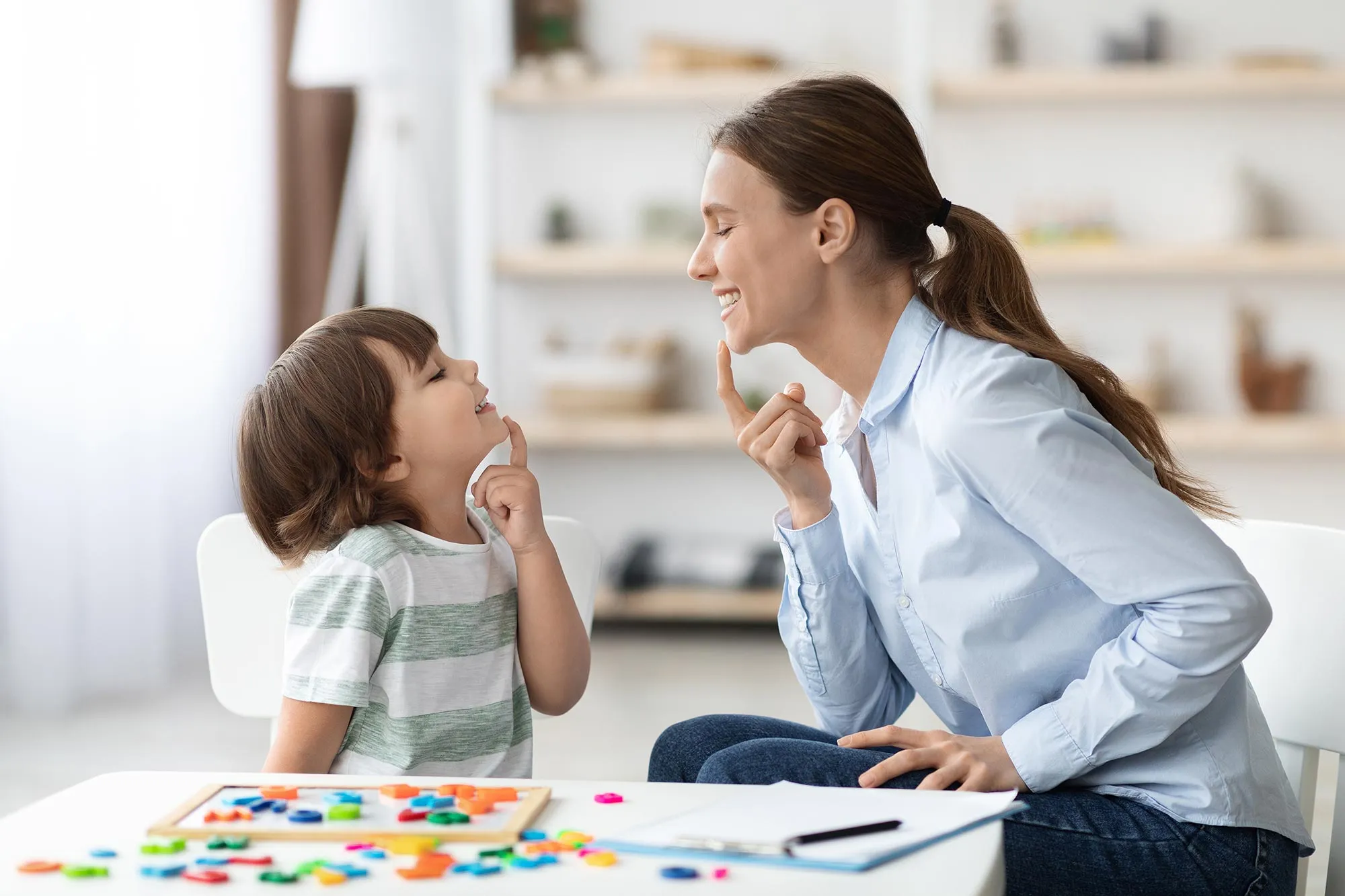Comprehending the Effect of Behavior Treatment on Mental Wellness
Behavior therapy plays a crucial duty in boosting psychological health and wellness. It utilizes structured techniques to identify and change negative behaviors and believed patterns. By promoting self-awareness and emotional strength, individuals can create much healthier coping strategies. The nuances of its performance throughout different psychological wellness problems and its combination into day-to-day life remain complicated. Discovering these elements discloses the extensive impact Behavior Therapy can carry total lifestyle.
The Principles of Behavior Therapy
Behavior Treatment is based in the principles of learning theory, emphasizing the function of visible actions in mental wellness therapy. This approach is based on the facility that habits are discovered and can be unlearned or customized through appropriate interventions. It concentrates on the communication between feelings, activities, and thoughts, presuming that changing maladaptive habits can bring about improved psychological and emotional wellness.
Central to this therapy is the concept of reinforcement, where favorable or unfavorable stimulations affect actions change. In addition, Behavioral Treatment prioritizes measurable outcomes, intending to track progress through visible adjustments. It likewise acknowledges the importance of context, advocating for an understanding of environmental aspects that add to behavioral patterns. By applying these principles, Behavioral Therapy addresses a wide variety of mental health issues, making it a effective and versatile therapy choice for people seeking to boost their psychological wellness through structured behavioral alterations.
Typical Methods Used in Behavioral Treatment
Common strategies used in Behavioral Therapy play an essential function in attending to different psychological health issues. This discussion will highlight cognitive behavioral methods, direct exposure therapy methods, and support approaches, each contributing uniquely to the restorative process. Recognizing these techniques can boost awareness of exactly how Behavior Treatment effectively promotes psychological health.
Cognitive Behavioral Techniques
While different strategies exist within the domain name of treatment, cognitive behavior methods stand out for their organized methods focused on addressing adverse idea patterns and actions. These techniques normally include identifying distorted cognitions, challenging these ideas, and changing them with more balanced point of views. Typical strategies consist of cognitive restructuring, where individuals discover to acknowledge and modify their automatic adverse thoughts, and behavioral activation, which motivates involvement in favorable activities to combat feelings of depression. Additionally, mindfulness practices are usually incorporated to improve understanding of thoughts and feelings without judgment. By systematically overcoming these techniques, individuals can establish much healthier coping devices, eventually leading to improved psychological health and durability against various emotional obstacles.
Direct Exposure Treatment Approaches
Exposure therapy techniques are commonly identified as reliable methods within Behavior Treatment, specifically for dealing with anxiousness conditions, fears, and post-traumatic tension disorder (PTSD) These approaches include steady exposure to feared stimulations, enabling individuals to challenge and refine their fears in a controlled environment. Common methods consist of methodical desensitization, where people are slowly revealed to anxiety-provoking circumstances while exercising leisure approaches. One more strategy is flooding, which engages individuals in their worries for an extensive duration, frequently leading to fast desensitization. Virtual truth direct exposure therapy has actually additionally gotten appeal, enabling patients to involve with virtual atmospheres that replicate their worries. Overall, exposure treatment methods aim to minimize evasion actions and aid individuals create coping approaches, ultimately enhancing psychological health and wellness and health.
Support Methods Clarified
Reinforcement strategies play a crucial duty in Behavior Treatment, employing numerous methods to urge preferred behaviors and lessen undesirable ones. Positive reinforcement includes awarding a habits, making it extra likely to persist. This can consist of verbal praise, symbols, or substantial incentives. Adverse support, on the other hand, includes getting rid of an undesirable stimulus when a preferred behavior occurs, thereby enhancing its regularity. Penalty techniques might also be made use of, where an unfavorable consequence adheres to an undesirable habits to decrease its occurrence. In addition, forming methods slowly reinforce closer approximations to the wanted behavior. By applying these methods methodically, specialists can properly change habits patterns, advertising psychological wellness and boosting general health for people looking for assistance in managing their conditions.
Efficiency of Behavior Therapy for Various Mental Health And Wellness Issues
Behavior Therapy has actually shown significant effectiveness in dealing with various psychological health and wellness issues, particularly anxiety disorders and depression. Research study shows that people going through Behavioral Therapy frequently experience noteworthy improvements in managing their signs. This discussion will discover the certain success rates linked with these therapies for stress and anxiety and anxiety.
Anxiety Problems Treatment Efficacy
Although anxiety conditions can significantly harm day-to-day performance, study constantly shows the efficiency of Behavioral Therapy in relieving symptoms. Different kinds of Behavior Treatment, consisting of cognitive-behavioral therapy (CBT), have shown significant success in treating anxiety conditions such as generalized stress and anxiety condition, social stress and anxiety disorder, and panic attack. These treatments concentrate on identifying and changing adverse thought patterns and behaviors, outfitting individuals with coping strategies to handle their anxiousness. Research studies suggest that individuals often experience a reduction in stress and anxiety degrees, enhanced coping systems, and improved overall lifestyle adhering to therapy. Furthermore, the structured nature of Behavior Treatment allows for quantifiable development, making it a recommended option among mental wellness specialists for attending to anxiety-related problems efficiently.
Depression Management Success Fees
Stress and anxiety conditions and clinical depression usually co-occur, bring about overlapping treatment approaches, specifically in the domain name of Behavior Treatment. Research study shows that cognitive-behavioral treatment (CBT), a noticeable type of Behavioral Therapy, has shown substantial success in managing depression. Research studies reveal that approximately 60-70% of people receiving CBT for clinical depression experience a noteworthy reduction in symptoms. This performance is credited to CBT's structured method, which gears up individuals with coping systems and cognitive restructuring methods. Additionally, the combination of Behavior Treatment with pharmacotherapy can improve success prices, offering a thorough strategy for those having problem with extreme clinical depression. In general, Behavior Therapy continues to be a critical treatment for improving mental health results in people dealing with anxiety.
The Duty of a Therapist in Behavioral Treatment

Therapists serve as overviews and facilitators in the practice their explanation of Behavior Therapy, aiding clients navigate their obstacles via structured interventions. They employ numerous methods, such as cognitive restructuring and exposure treatment, to aid clients in identifying and changing maladaptive habits and believed patterns. By establishing a supportive and non-judgmental atmosphere, specialists foster count on, which is vital for efficient therapeutic engagement.
Specialists additionally enlighten customers about the concepts of Behavioral Treatment, enabling them to recognize the rationale behind certain methods. This understanding encourages clients to take an energetic duty in their treatment. In addition, therapists keep an eye on progress, readjusting interventions as needed to assure the most effective outcomes. They provide responses and support, reinforcing positive modifications and helping clients create coping techniques for future challenges. Overall, the specialist's duty is critical in leading customers toward improved mental health and wellness and boosted health through structured restorative strategies.

Long-Term Advantages of Behavioral Therapy
While lots of people seek Behavioral Treatment to attend to prompt difficulties, the lasting advantages extend much past preliminary signs and symptom relief. One significant advantage is the growth of coping techniques that enhance emotional strength, allowing people to browse future tensions better - ABA Therapy. Customers typically report boosted self-awareness, which promotes a higher understanding of their behaviors and ideas, promoting much healthier decision-making processes
In addition, Behavioral Therapy can lead to sustained Continue improvements in interpersonal partnerships. By learning effective communication and analytic abilities, individuals may experience deeper connections with others, reducing sensations of isolation. Moreover, several discover that these therapeutic strategies add to a proactive method to psychological wellness, enabling them to take care of possible obstacles prior to they rise.
Eventually, the lasting effect of Behavior Treatment can cause a more satisfying life, defined by raised emotional security, boosted relationships, and a greater sense of total health.
Incorporating Behavior Treatment Into Life
Building on the long-term benefits of Behavior Therapy, integrating its principles into everyday life can even more boost psychological strength and health. People can begin by incorporating straightforward techniques, such as cognitive restructuring, which includes challenging negative thoughts and replacing them with even more favorable alternatives. Developing a regimen that includes mindfulness techniques, like reflection or deep breathing, can also cultivate recognition of feelings and habits.
Establishing attainable objectives and commemorating small triumphes can reinforce self-efficacy and inspiration. Taking part in regular exercise not only enhances state of mind however also helps keep the technique discovered with therapy. Additionally, promoting helpful connections and open interaction can supply necessary psychological support. By actively using these Behavior Treatment methods, people can cultivate a healthier way of thinking, navigate day-to-day difficulties more successfully, and add to a general better lifestyle.
Often Asked Inquiries

The Length Of Time Does Behavioral Treatment Usually Last?
Behavior Treatment commonly lasts from a few weeks to several months, relying on private Recommended Site needs and details concerns being dealt with. Procedure typically happen weekly, with progress evaluations directing the duration of the treatment.
Can Behavioral Treatment Be Done Online?
Behavioral Therapy can certainly be performed online, using video conferencing systems. This method provides flexibility and ease of access, permitting individuals to involve with their specialists from the convenience of their homes, preserving restorative connection.
What Should I Anticipate in My Initial Session?
In the initial session, customers can anticipate an introductory conversation, analysis of their worries, and establishment of therapy goals - ABA Therapy. The therapist might describe the process and address any kind of concerns to create a comfortable environment
Exist Any Kind Of Negative Effects of Behavioral Therapy?
Behavioral Therapy typically has couple of adverse effects, yet some people may experience temporary discomfort, emotional distress, or raised stress and anxiety as they challenge difficult thoughts and habits. These responses usually decrease as therapy proceeds and coping approaches establish.
How Do I Discover a Certified Behavioral Therapist?
To locate a certified behavioral specialist, people must look for referrals from medical care suppliers, check on the internet directory sites, and confirm qualifications. Additionally, reading testimonials and scheduling initial appointments can help evaluate compatibility and experience prior to deciding.
Direct exposure treatment approaches are extensively recognized as reliable methods within behavior therapy, especially for treating stress and anxiety problems, anxieties, and post-traumatic tension disorder (PTSD) Numerous types of behavioral therapy, consisting of cognitive-behavioral treatment (CBT), have actually revealed significant success in treating anxiousness conditions such as generalized anxiousness condition, social stress and anxiety problem, and panic problem. Research indicates that cognitive-behavioral treatment (CBT), a popular type of behavioral therapy, has actually demonstrated significant success in managing clinical depression. While many individuals seek behavioral therapy to deal with immediate obstacles, the long-lasting benefits extend far past first signs and symptom alleviation. Behavioral treatment typically has couple of side impacts, yet some people may experience temporary pain, emotional distress, or raised anxiousness as they face tough ideas and habits.